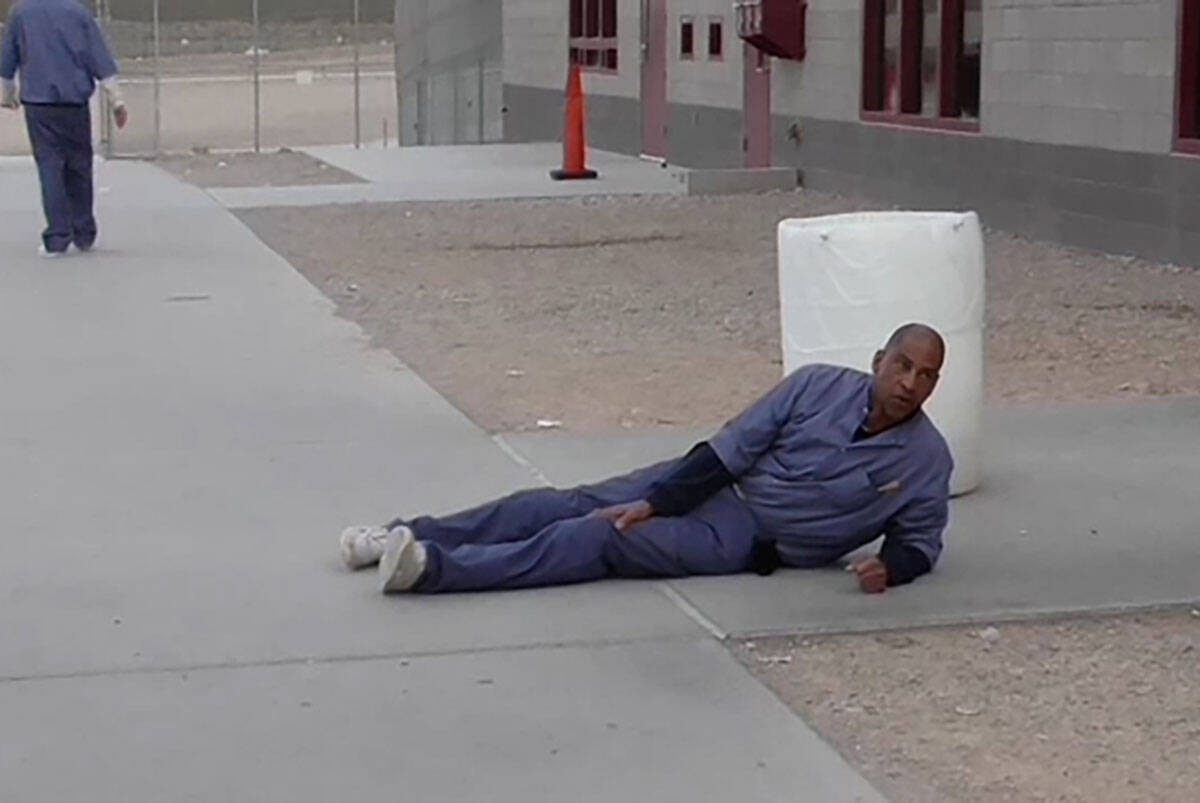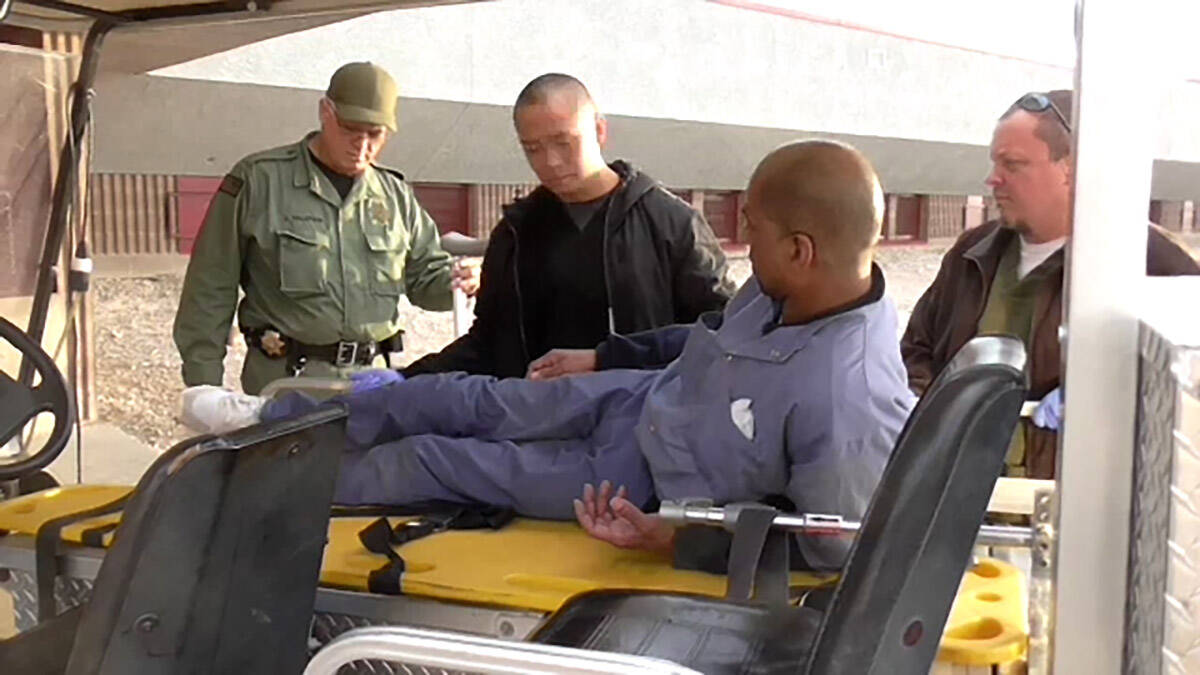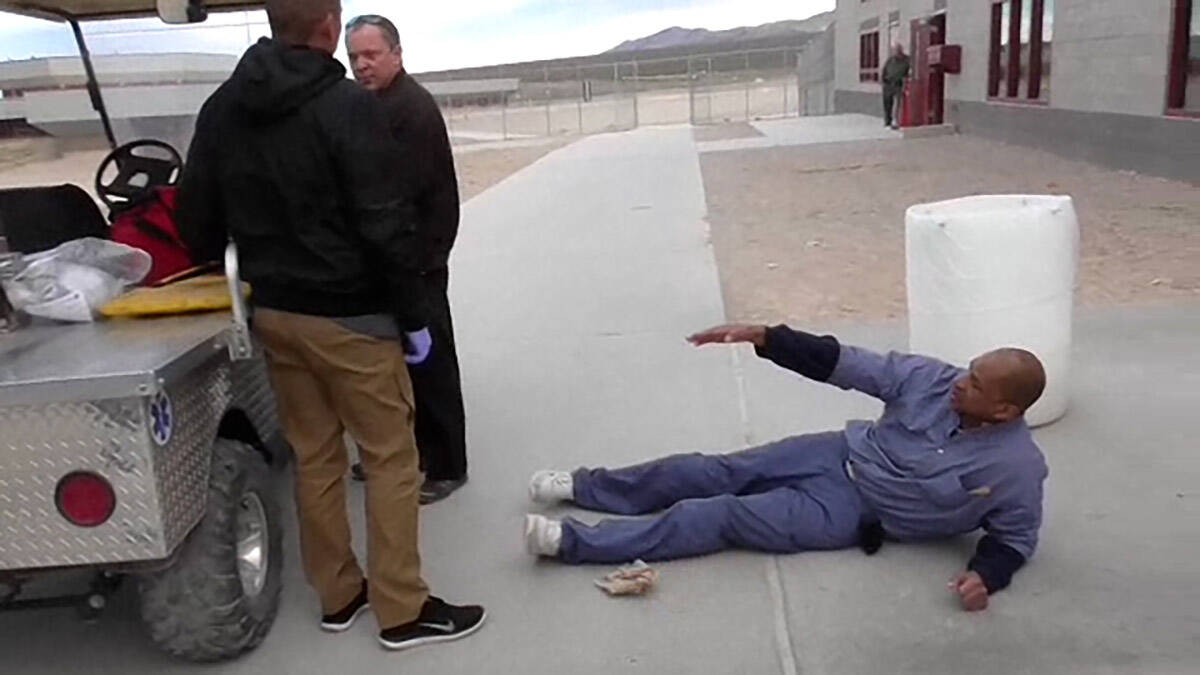AG’s office trying to avoid paying jury award to prisoner, attorneys say
A federal jury awarded a Nevada prisoner more than $200,000 in damages this year in a civil rights case against a corrections officer, but the prisoner’s lawyers say the attorney general’s office is trying to avoid paying.
Reginald Howard, an inmate now housed at High Desert State Prison, filed the federal lawsuit against corrections officer Kyle Groover, alleging that Groover ignored a painful medical condition that affects Howard’s back and forced him to walk about 150 yards across a prison to file a grievance, in retaliation for past complaints Howard had made.
The Nevada attorney general’s office, which represents Groover, has argued in court filings that if a request for a new trial is not granted, then Groover should be responsible for the more than $200,000 in damages.
“Groover first argues that punitive damages cannot be maintained against him because the State is, minimally, equivocating as to whether it must foot the bill,” Howard’s attorneys, Travis Barrick, Nathan Lawrence and Andrea Vieira, wrote in court filings. “… The State’s attempts to avoid indemnification and shift payment of all the damages to Groover put the State and Groover at absolute odds, forcing the Attorney General into an untenable and insoluble conflict of interest.”
The attorney general’s office declined to comment on the case. Attempts to contact Groover were not successful.
Lawrence said that typically, the state has the legal obligation to defend its employees and indemnify them, meaning the agency would pay for any damages incurred through a lawsuit.
Following the jury verdict, the state has argued in court filings that under state law, the agency does not have to indemnify an employee if their actions were “wanton or malicious,” which the jury had to conclude in order to award Howard punitive damages for the civil rights claim.
Howard’s attorneys said the state has not historically argued to use state law to avoid indemnifying employees in federal cases.
“The state is arguing that their employees are going to get hung out to dry over civil rights claims,” Barrick said in a recent interview with the Review-Journal.
Barrick said that the damages in Howard’s lawsuit are the highest he’s seen a jury award an inmate since he started taking on prisoner civil rights cases more than a decade ago.
Inmate alleged retaliation
The lawsuit stemmed from an incident in July 2016, when Howard was housed at the Southern Desert Correctional Center serving a life sentence on burglary and habitual criminal charges.
He had been given crutches due to nerve pain from a back injury that periodically made him unable to walk, his attorneys wrote in court documents. On July 13, 2016, a corrections officer told Howard he was going to write him up because Howard had been seen walking without his crutches.
Howard wrote an emergency grievance, alleging that the officer was retaliating against him.
The grievance was supposed to be given to Groover, but because “Groover was annoyed with Mr. Howard’s prior grievances and wanted to deter him from filing more, Groover instructed the correctional officer to have Mr. Howard personally deliver the emergency grievance to Groover,” Howard’s attorneys wrote in court documents.
According to the filings, Groover told the corrections officer to have Howard walk 150 yards up an incline to deliver the grievance, causing Howard to fall multiple times while walking before he was taken to the infirmary. Howard’s attorneys wrote in court documents that Groover then denied Howard’s grievance.
During the trial in June, the jury ruled in Howard’s favor, finding that Groover ignored Howard’s medical condition and violated his First Amendment rights to file the grievance. The jury awarded Howard, now 63, a total of $12,500 in compensatory damages and $200,000 in punitive damages.
In court filings, the attorney general’s office disputed that Groover ordered Howard to walk 150 yards without his crutches and argued that Howard only had “on-and-off problems with pain and walking.”
“Howard fails to point to any testimony where he alleged that it was his understanding that Groover was mad, or upset, about the grievances,” lawyers with the attorney general’s office wrote in court records filed after the trial. “Likewise, Howard fails to cite to any piece of evidence that reflects Groover having some intention to retaliate.”
‘Exposing their employees’
The attorney general’s office has argued for the case to be retried or for the damages awarded to Howard to be reduced.
Vieira, one of Howard’s attorneys, said the attorney general’s office has a conflict of interest when representing Groover because his lawyers are making litigation decisions while also arguing that he should bear the brunt of the cost if the judge does not adjust the jury’s verdict.
At one point before trial, Howard was offered a $4,000 settlement, with the condition that he dismiss claims against any other potential defendants or prison officials. When Howard refused the state’s conditions, the case went to trial and resulted in the significantly higher verdict.
Howard’s attorneys said the conflict of interest that arises in the case should be concerning for state employees who could face litigation in future lawsuits.
“They are exposing their employees,” Vieira said.
Contact Katelyn Newberg at knewberg@reviewjournal.com or 702-383-0240.

























